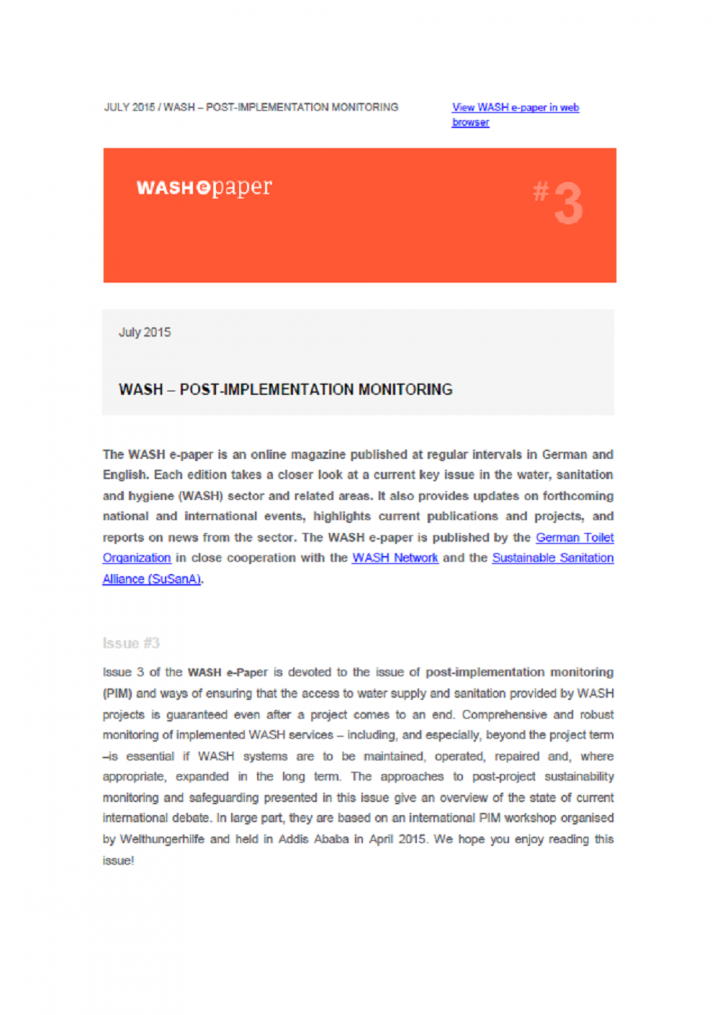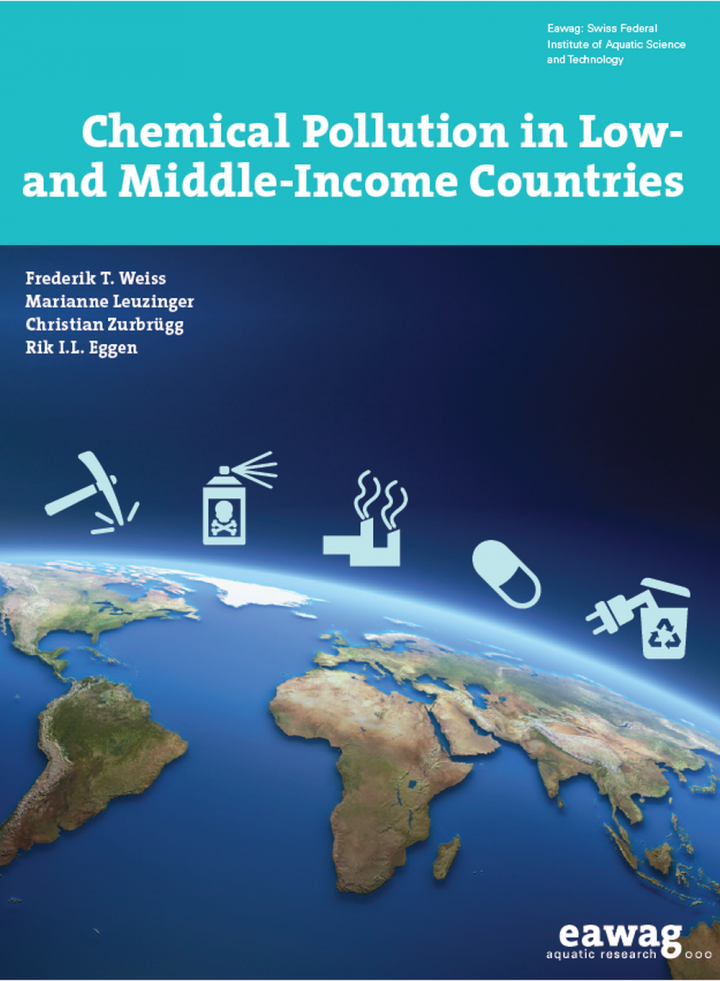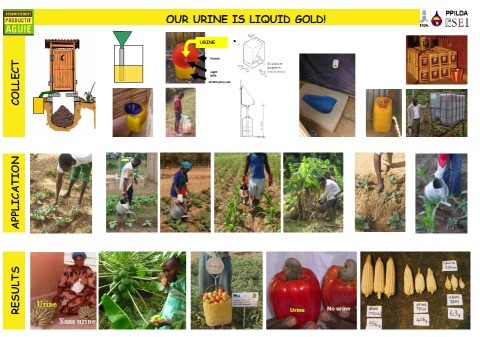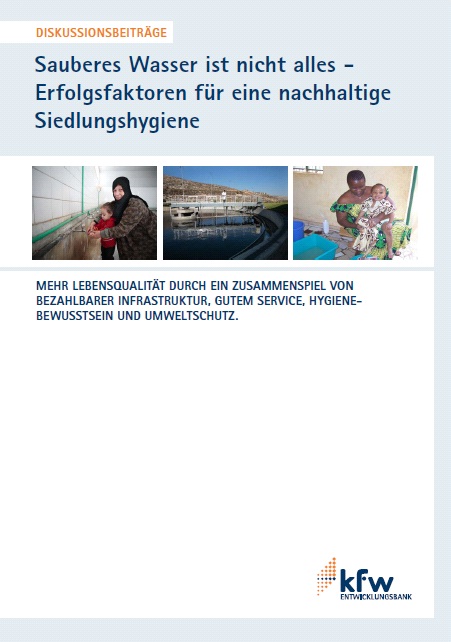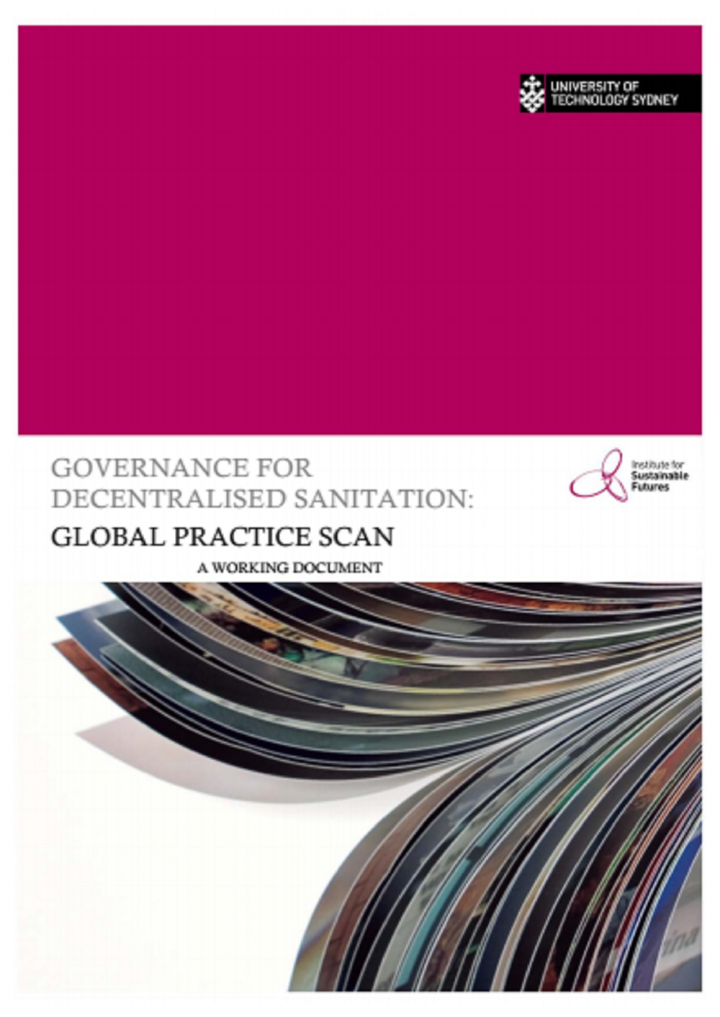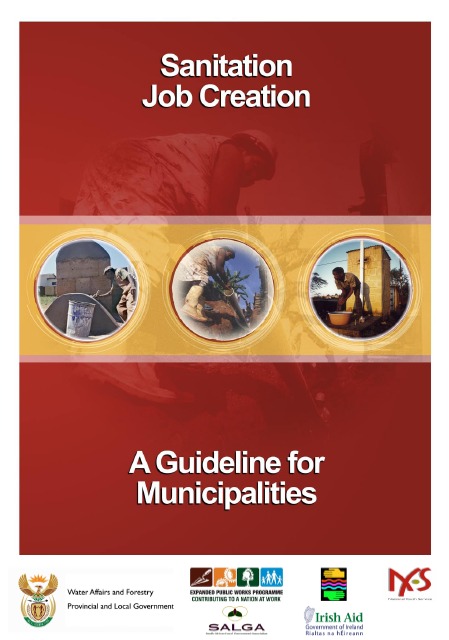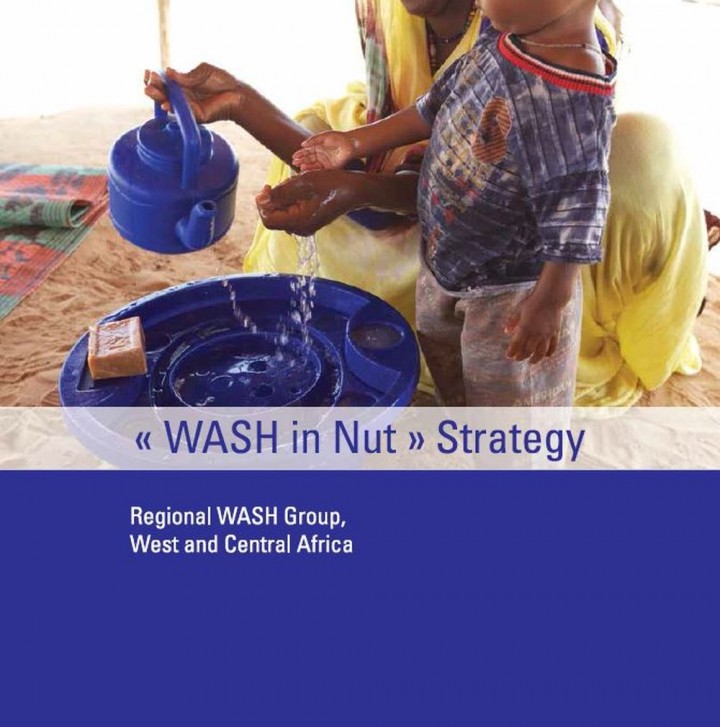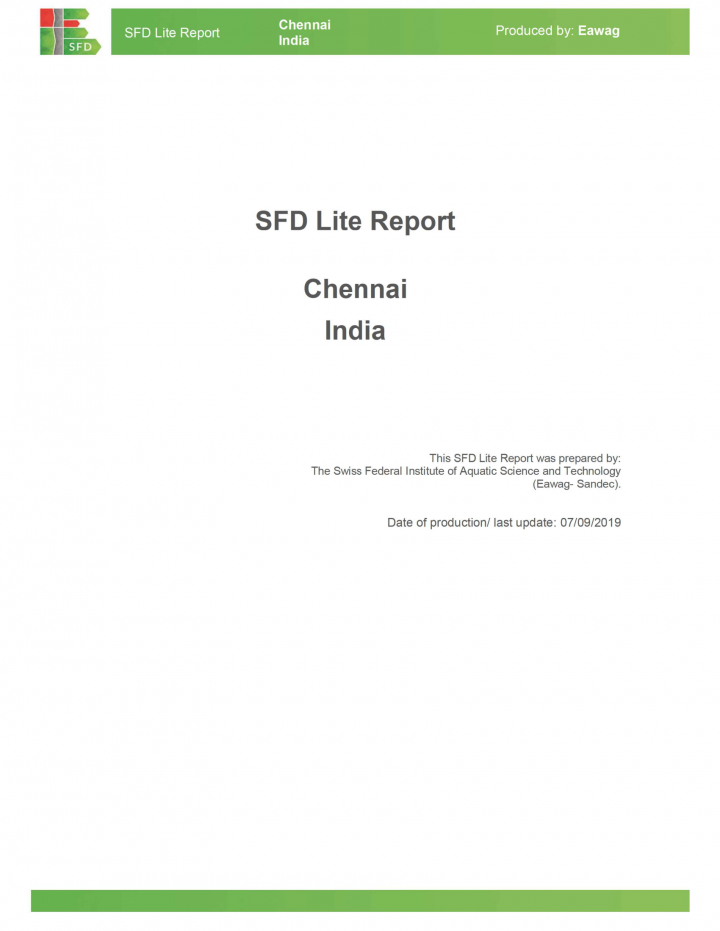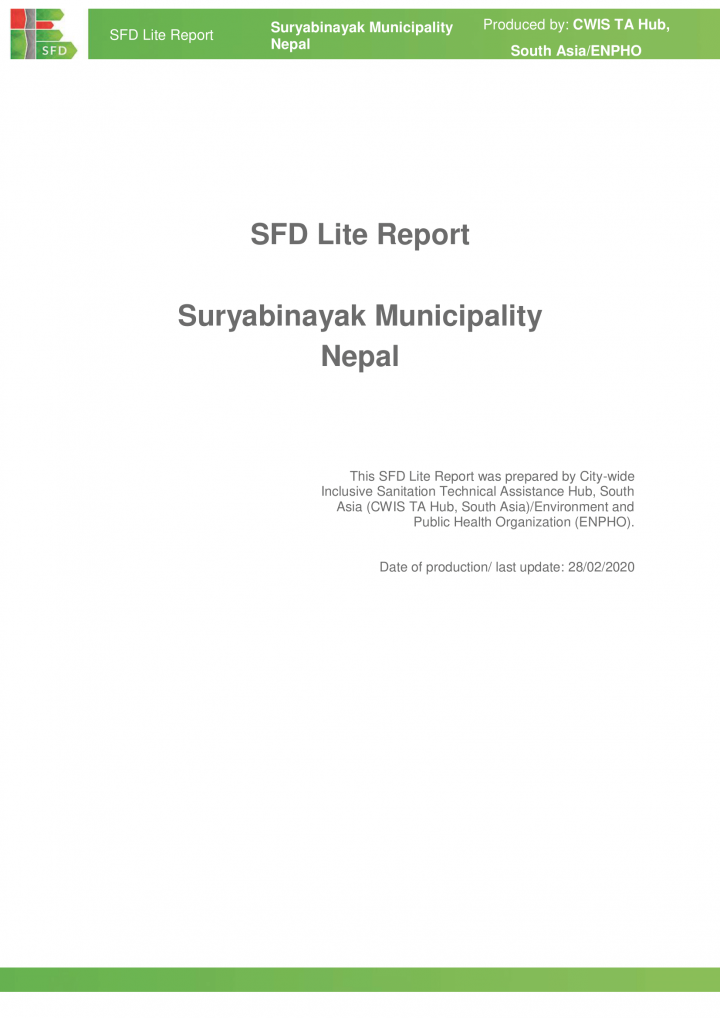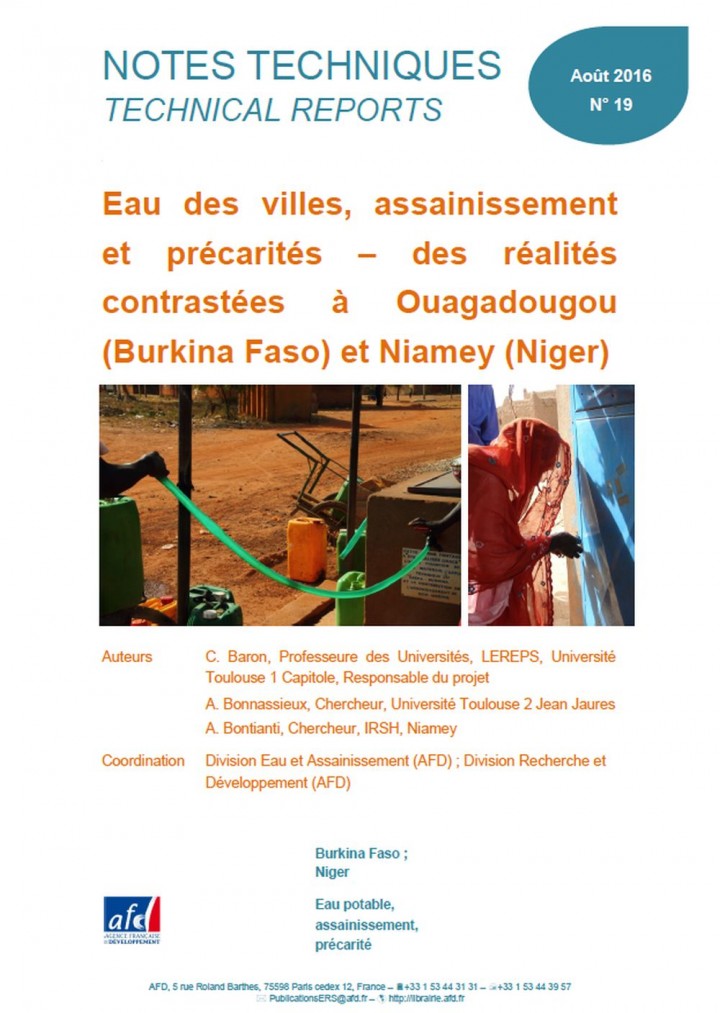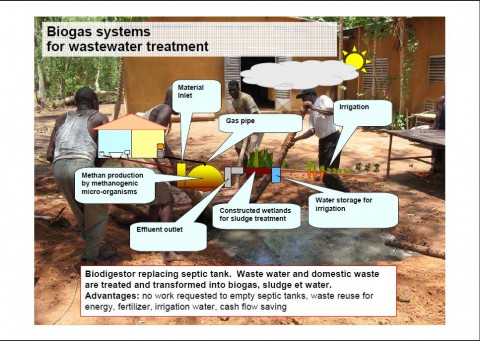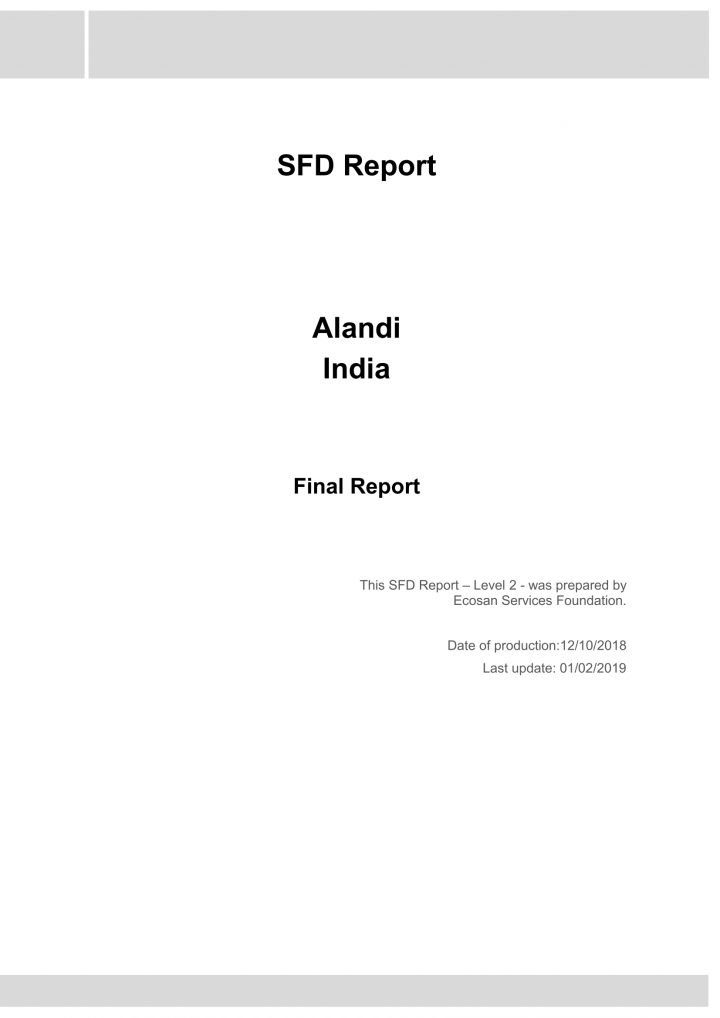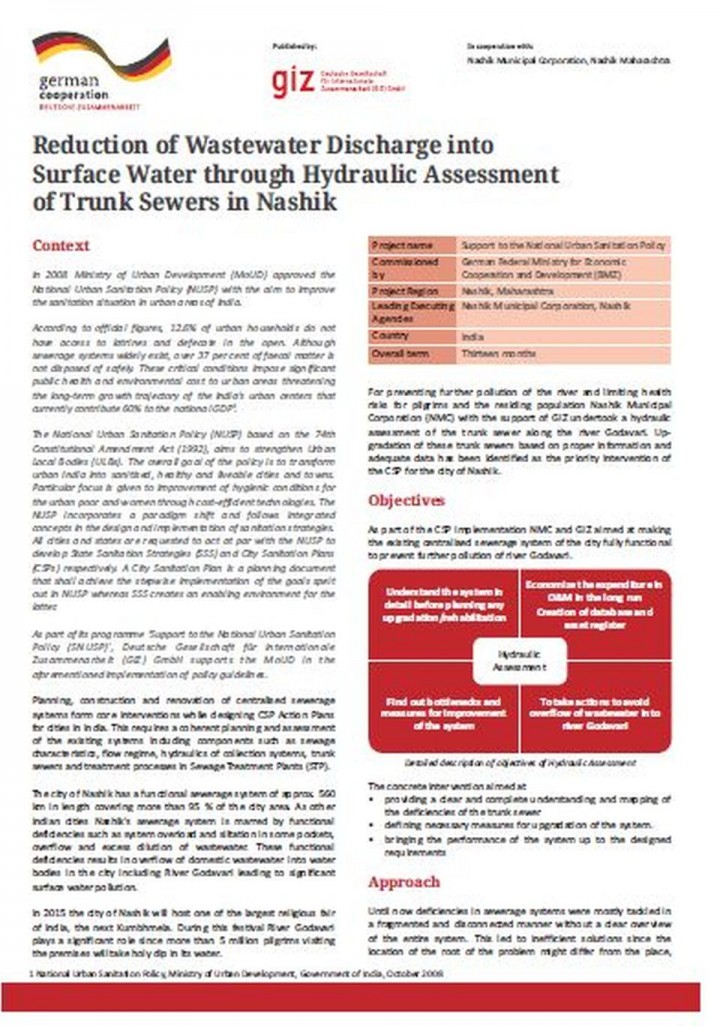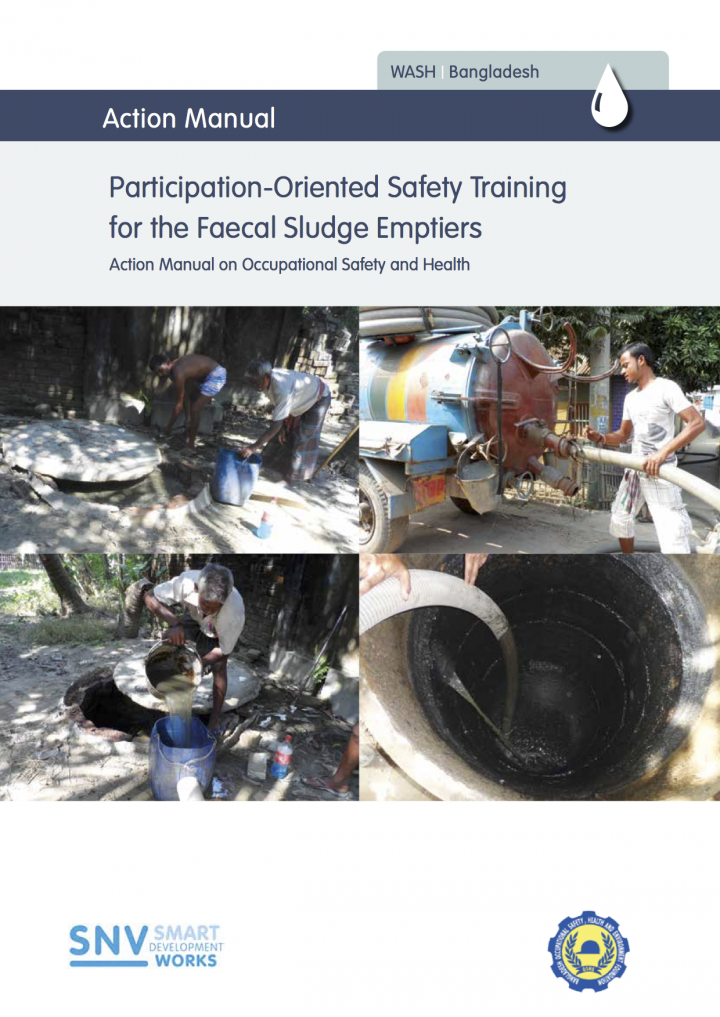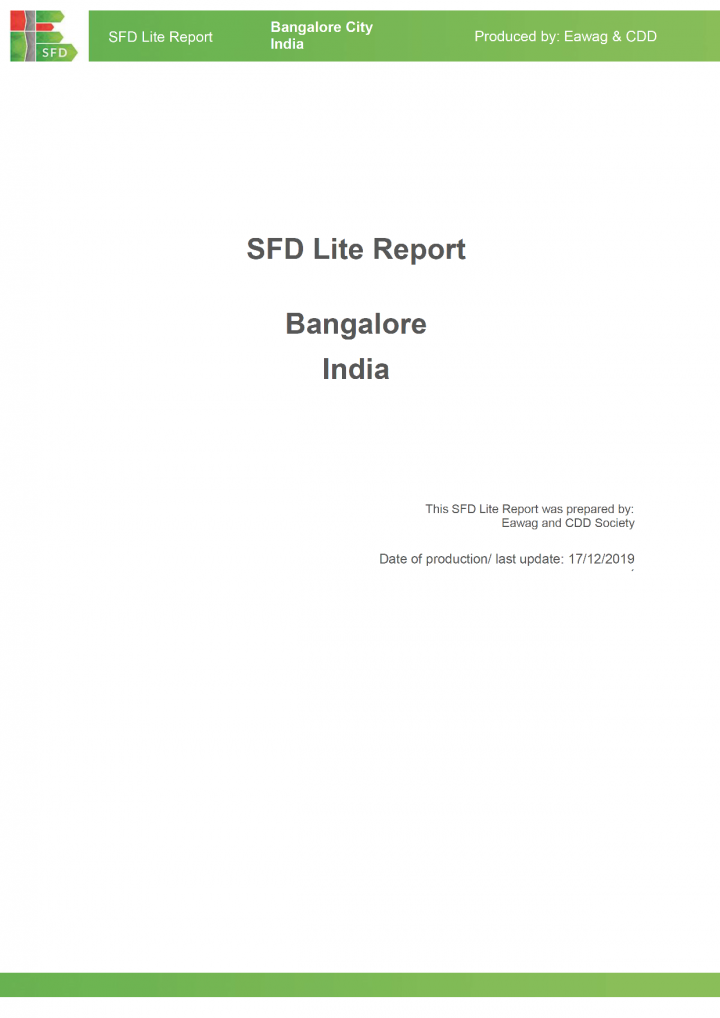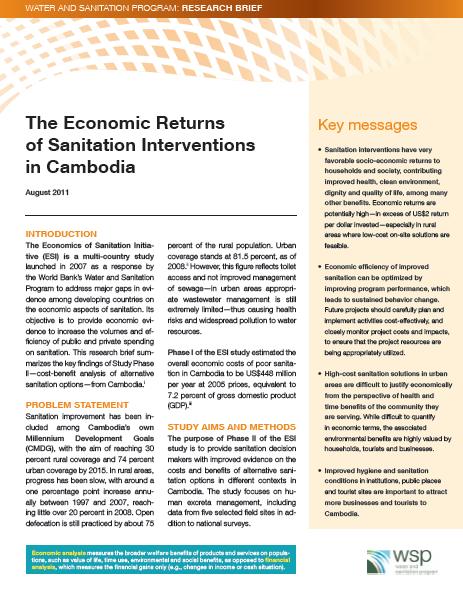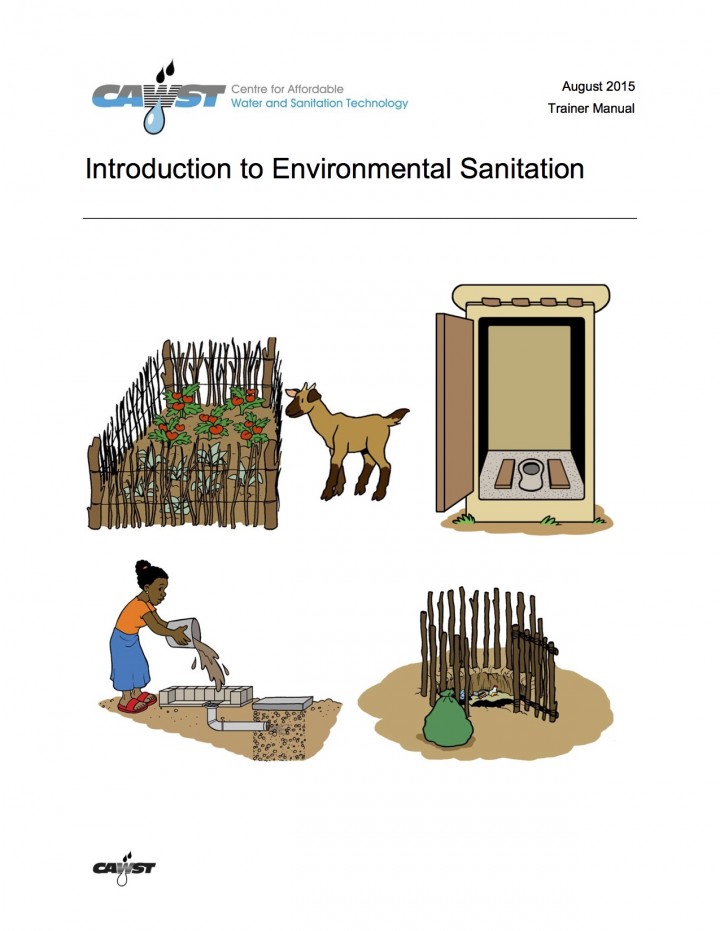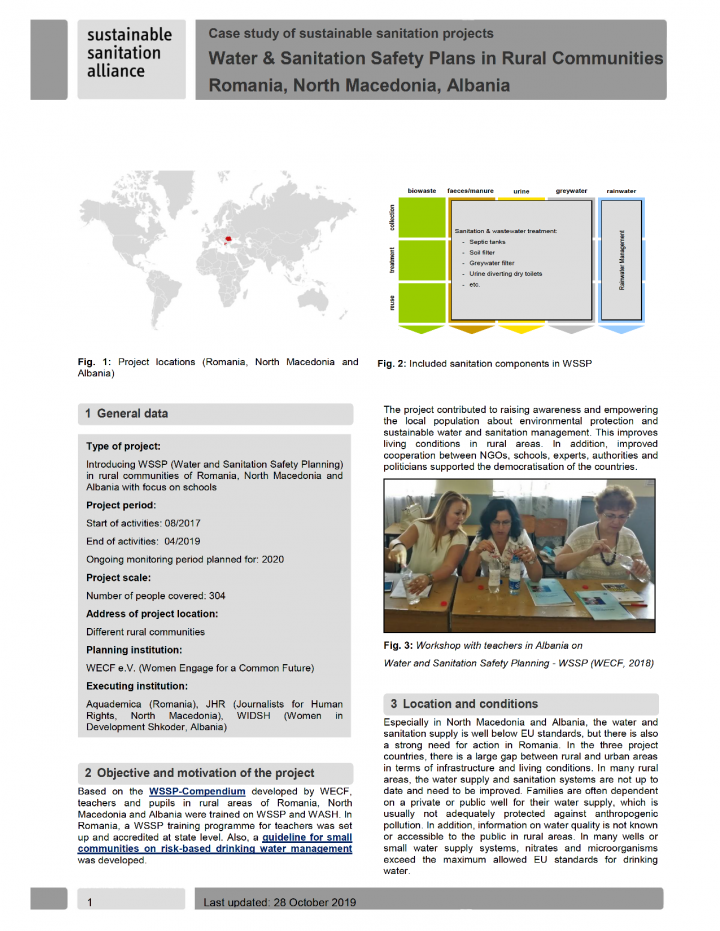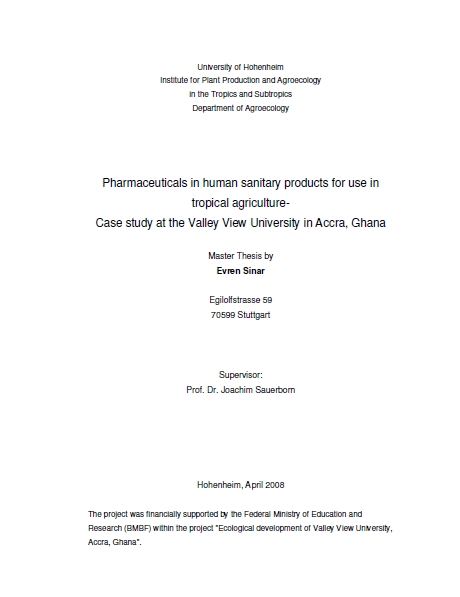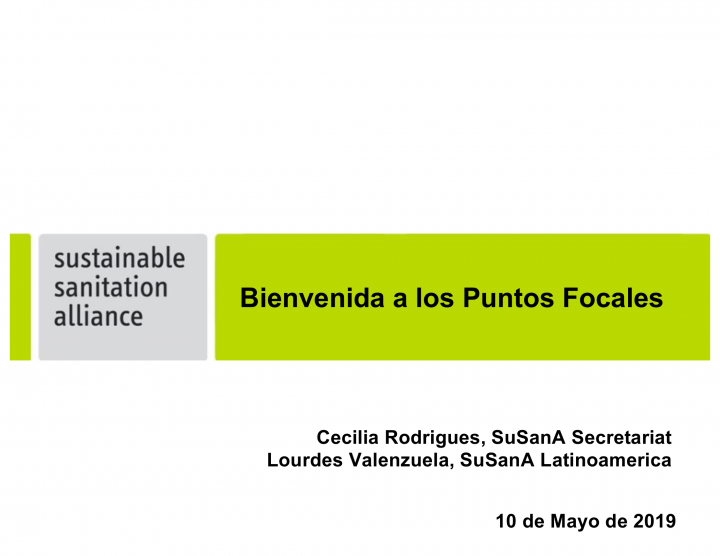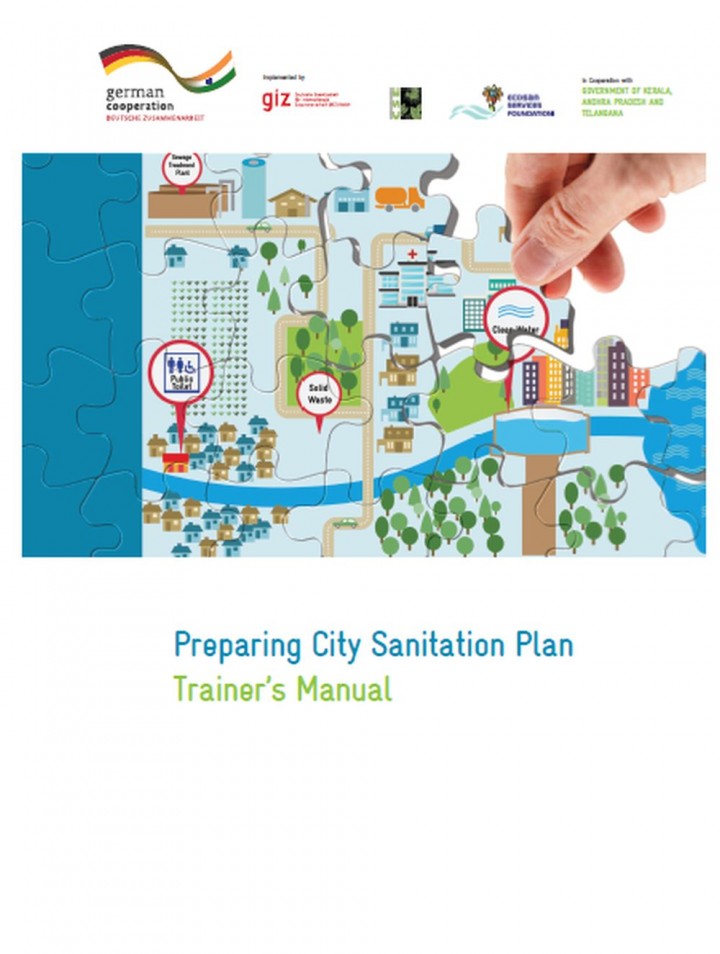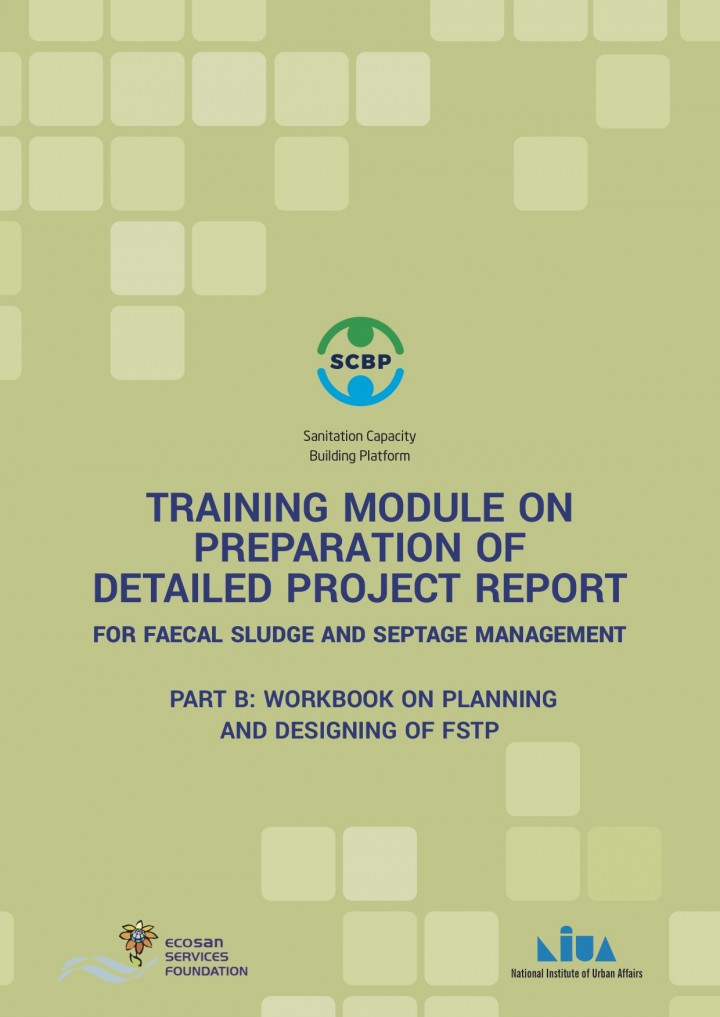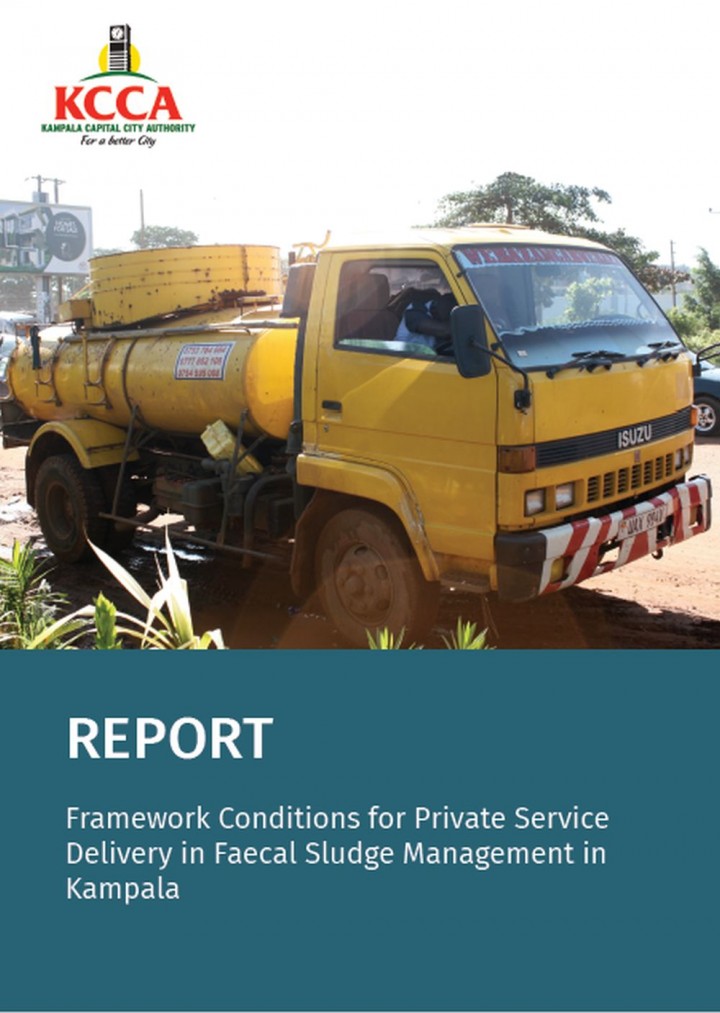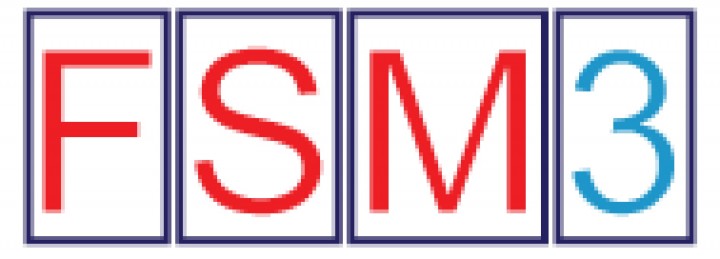Searching for information on Sanitation Workers?
The Sanitation Workers Knowledge + Learning Hub is the best source for all current news, trends, articles and updates on sanitation workers rights around the world.
The WASH e-paper is an online magazine published at regular intervals in German and English. Each edition takes a closer look at a current key issue in the water, sanitation and hygiene (WASH) sector and related areas. It also provides updates on forthcoming national and international events, highlights current publications and projects, and reports on news from the sector. The WASH e-paper is …
This report draws attention to the neglected issue of anthropogenic chemical pollution in low- and middle-income countries.
The daily use of chemicals is omnipresent and only a few industrial sectors do not use chemical products. Consideration of chemical pollution issues are mainstream in the developed world where policy and practice engage in finding and implementing appropriate solutions. …
This regional strategy was developed in 2012 during the nutritional and food crisis in the Sahel. It was updated in 2015. Revised during the 2014 consultation process, it remains an intersectoral guidance strategy that can be adapted to the specific national and local features of each country.
French Version:
http://www.susana.org/en/resources/library/details/2297
Chennai, the capital of state of Tamil Nadu is located on a flat coastal plain known as the Eastern Coastal Plains. It is the fourth largest metropolitan city in India. The estimated present population of the city is 7.1 million. Overall, the SFD Graphic depicts that 62% of excreta is safely managed while 38% is discharged untreated to the environment. The wastewater system for the city has been …
Suryabinayak Municipality is located in Bhaktapur District in Province No. 3 of Nepal. It consists of 10 wards with the total population of 113,471 people residing in 19,179 households. The majority (74%) of the households are dependent on piped water facility, 8% of the households rely on spring water and the remaining 18% are dependent on their own sources such as tap water (bore water) and …
This study is based on surveys con-ducted in six poor districts of Oua-gadougou and five of Niamey. It gives a comparison of the situation between the two cities in terms of access to water and sanitation. Its Primary objective is to clarify ambiguous concepts of "precarious" and "poor", qualifying both households and neighbourhoods. The second objective is to appreciate the interlocking between …
Alandi is a pilgrimage town and has a municipal council in Pune district. The population of town as per Census 2011 is 28,645 persons. The density of city is 4,188 persons per sq.km. which is very high as compared to the state average of 365 persons per sq.km. Slum population is 1,950 persons which constitutes 6.8% of the total population.
According to census, Alandi is dependent on onsite …
The broader objective of the Participation Oriented Safety Training (POST) manual is to support emptiers and employers involved in this field to improve their knowledge of occupational health and safety in both manual and mechanical operations. The present training manual aims to address the risks involved in faecal sludge handing and emptying operations through the implementation of …
Bangalore, the capital city of Karnataka is the third largest city and the fifth largest metropolitan area in India and is fast growing. It is a centre for education, IT and biotechnology, advanced health care and is home to many more Multi National Corporations (MNCs) which attract people to the city. As per Census 2011, the population of Bangalore City was about 8.5 million. Overall, the SFD …
This collection contains the resources for both trainers and participants for the Environmental Sanitation workshop. This two-three day workshop is designed for WASH, community development and health organizations. The workshop explores the relationship between environmental sanitation, disease transmission and health. It addresses technical topics such as human excreta management including …
Based on the WSSP-Compendium developed by WECF, teachers and pupils in rural areas of Romania, North Macedonia and Albania were trained on WSSP and WASH. In Romania, a WSSP training programme for teachers was set up and accredited at state level. Also, a guideline for small communities on risk-based drinking water management was developed. The project contributed to raising awareness and …
This training programme is a unique blend of training courses for participants coupled with additional handholding support through various mechanisms in a step-wise manner. This is a distinguishing feature from other stand-alone training programmes and ensures that the participants are themselves capacitated through the training. Handholding support leads to transfer of knowledge on the ground …
About the Training Modules
Training Modules on decentralsid sanitation, septage and waste water have been developed, tested and delivered by SCBP during 2016-17, during training of government officials from UP, Rajasthan, MP, Telengana, Bihar, Karnataka, West Bengal, Jharkhand and Chattisgarh. These Modules have also been used in Training of Trainers(ToTs) of Amrut Nodal Agencies, Academia, …
Sanitation issues are some of the most significant development challenges for Kampala City, Uganda. Like many other capital cities in developing countries, Kampala is experiencing rapid population and economic growth. However, provision of key services including adequate sanitation for the city population has not been in tandem with these developments.
In Uganda, piped sanitation systems are …
Given the critical role of septage management in supporting rapidly urbanizing cities in developing nations as a solution, the FSM3 conference provided an ideal opportunity to understand and reflect on whole system approaches. This included generating knowledge for the development of FSM planning tools and instruments and testing practical and implementable tools to advise cities in upgrading …

